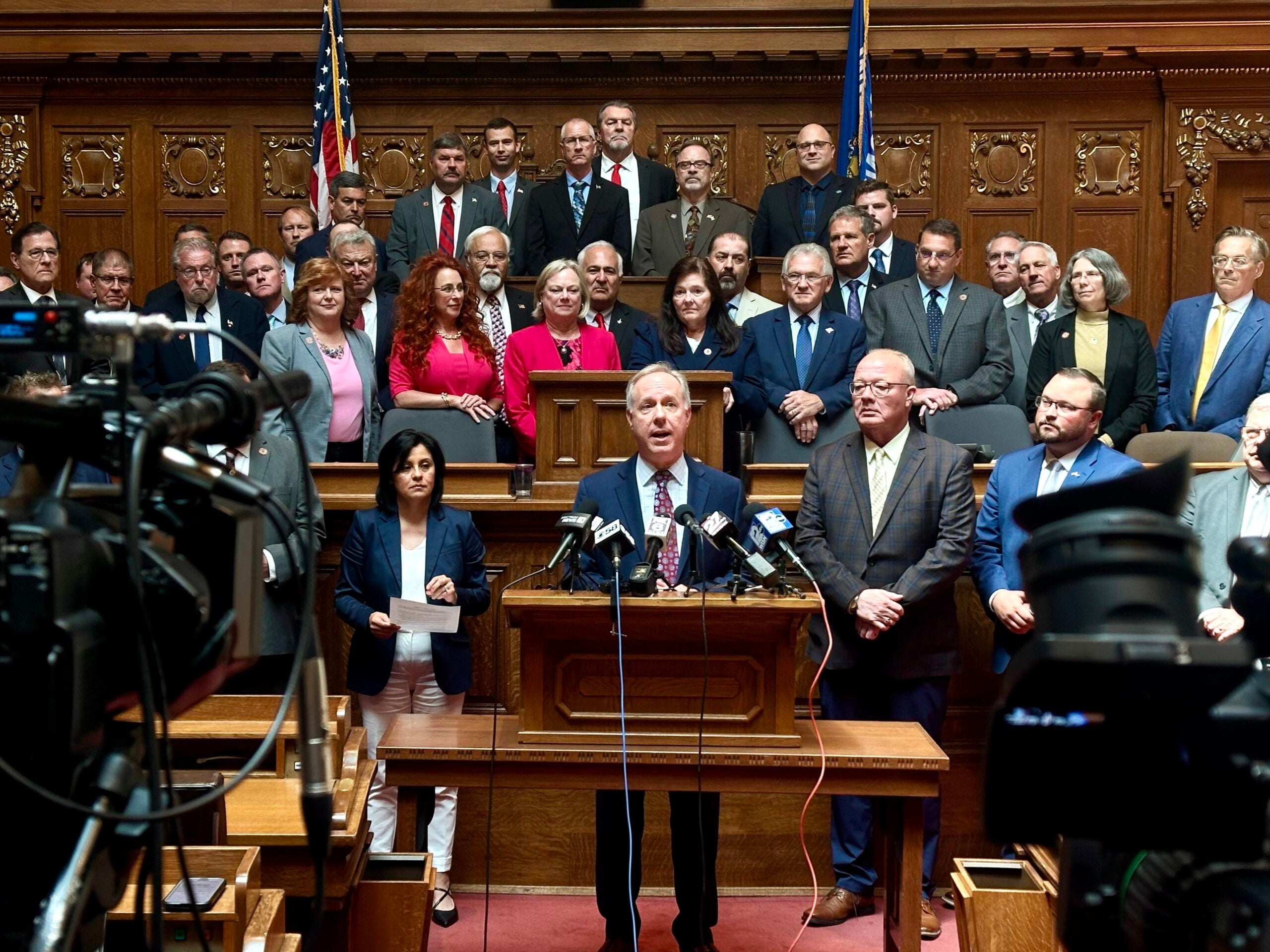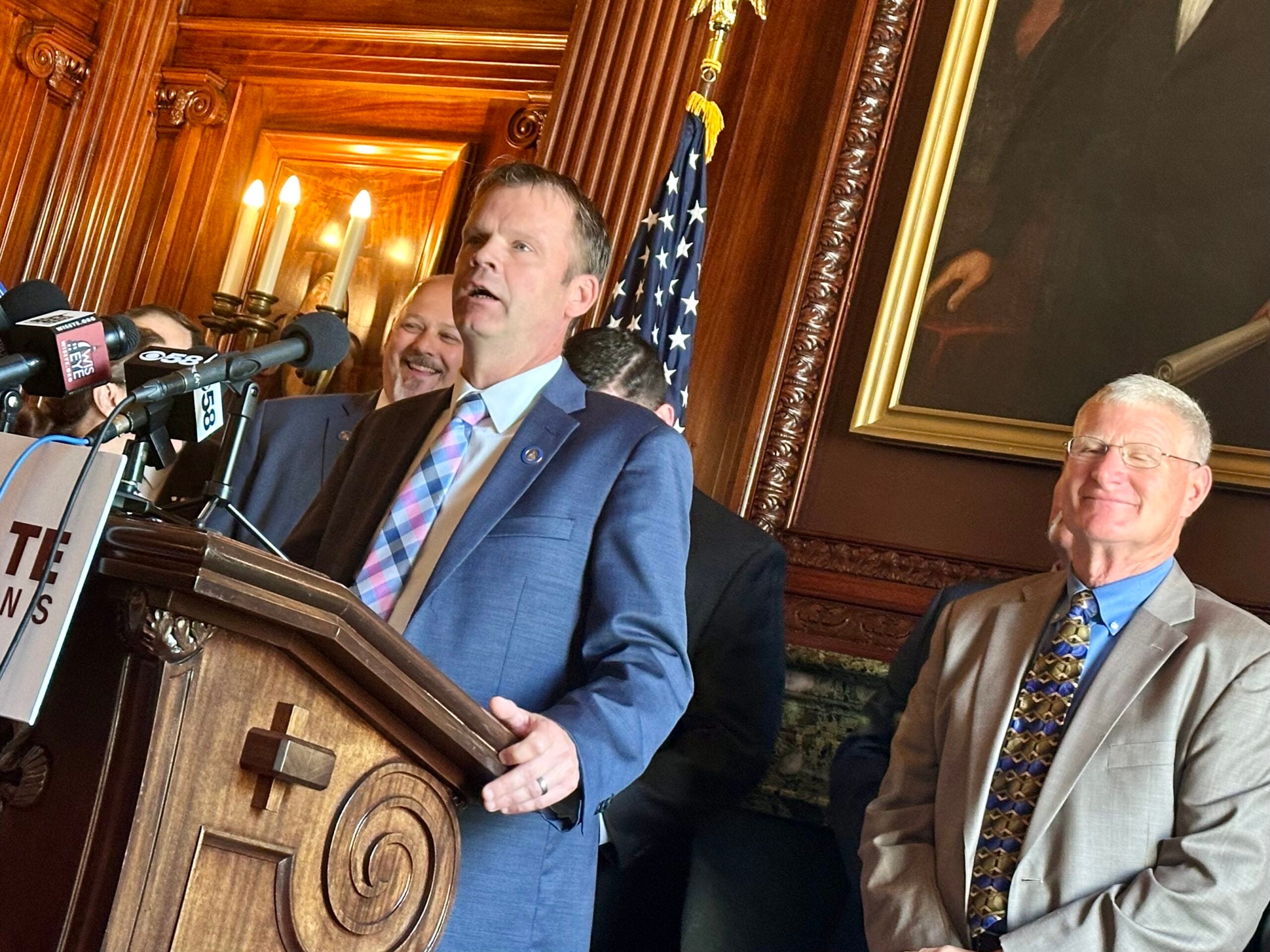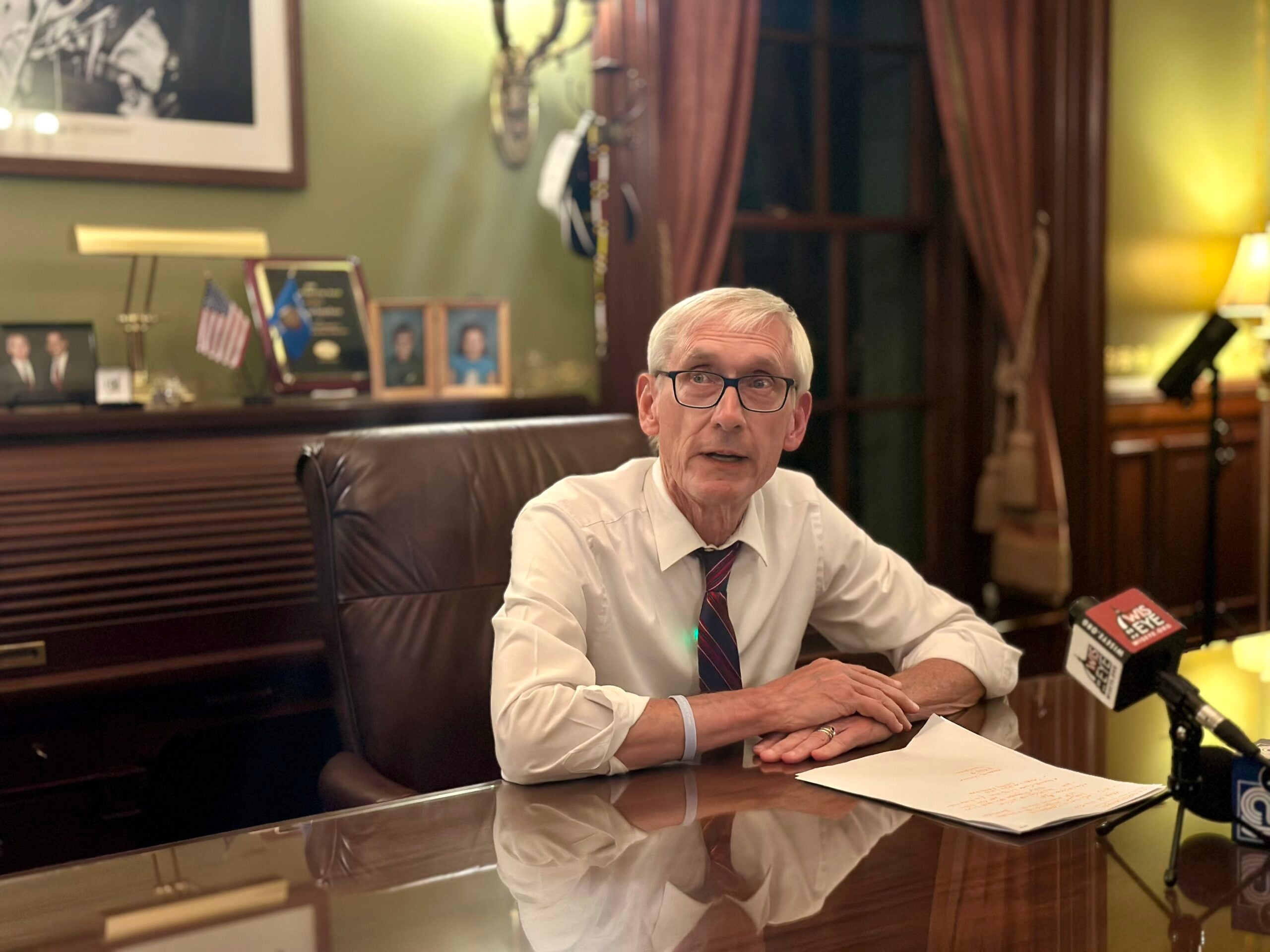Lawmakers convened Wednesday morning to take up the state’s biennial budget bill while the ink was still fresh on the budget committee’s work. They’re aiming to get it to Gov. Tony Evers’ desk before a deadline out of Washington could cost Wisconsin hospitals nearly $1.5 billion.
After a monumental, months-long negotiation period wrapped up Tuesday in the Joint Finance Committee, the final $111 billion budget proposal made its way to the Wisconsin Senate and Assembly for debate and passage.
But even as debate began Wednesday morning, details were still being finalized, leaders said.
News with a little more humanity
WPR’s “Wisconsin Today” newsletter keeps you connected to the state you love without feeling overwhelmed. No paywall. No agenda. No corporate filter.
One of the largest hurdles to passage was among Republicans in the Senate. Their majority is comparatively slim at 18-15. Two expected no votes among Republicans sent Senate Majority Leader Devin LeMahieu, R-Oostburg, in need of Democratic votes.
Early Wednesday, LeMahieu said there were enough votes in the chamber for passage. He also said he was still working to finalize Republican votes — and to understand the 421-page document.
“We’re working on a technical amendment right now,” he said, less than an hour before the Senate gaveled in to vote. “This is sort of an atypical process. A lot has been done over the last week, so we’re still reviewing the bill.”
Meanwhile, Democrats found themselves in a position of power — unusual in the GOP-controlled Legislature — as bipartisan support became necessary for the budget’s final passage. Senate Minority Leader Dianne Hesselbein, D-Middleton, also declined to describe which of her members might vote to support the budget.
“Each senator will make up his or her decision on how to vote,” she said. “I worked on a bipartisan agreement to get the job over the finish line, and I know we will do that today.”
Senate Democrats moved to amend the bill on the floor, pushing — unsuccessfully — for increased funds for child care, education, paid family leave, free school lunches and other priorities. Assembly Democrats are expected to do the same when their own session begins later Wednesday.

Federal budget bill means a deadline for funding Wisconsin hospitals
Meanwhile, lawmakers and Evers are up against an unexpected deadline out of Washington: the reconciliation of the “One Big Beautiful Bill Act.” President Donald Trump’s signature, sweeping tax and immigration legislation passed the U.S. Senate yesterday, and is en route to the U.S. House for final reconciliation before it goes to Trump to sign into law.
Included in that bill are massive cuts to Medicaid, including a cap on how much money states can request from the federal government through hospital assessment fees. That’s a complex set of transfers that allows hospitals to recoup matching funds from the federal government.
Currently, Wisconsin’s assessment rate is at 1.8 percent. This budget proposal being debated on Wednesday would raise that to the federal maximum of 6 percent. If the federal budget act is signed before Wisconsin lawmakers approve the state’s budget, Wisconsin would be unable to raise its hospital assessment fee.
So lawmakers are racing against the clock to get a bill to Evers’ desk that raises that limit before they are banned from doing so. Both parties argue losing those federal funds would especially harm rural hospitals.
“That’s why we’re working really fast to get it done,” LeMahieu told reporters Wednesday. “We will get the bill to the governor’s desk prior to the President signing the big, beautiful bill.”
Later in the day, Assembly Speaker Robin Vos, R-Rochester, also expressed hope that the budget would move forward quickly.
“It’s about a billion dollars that will be able to flow to an awful lot of rural hospitals,” he said. “We want to get it done, and we want to access those dollars.”
Wisconsin Public Radio, © Copyright 2026, Board of Regents of the University of Wisconsin System and Wisconsin Educational Communications Board.







